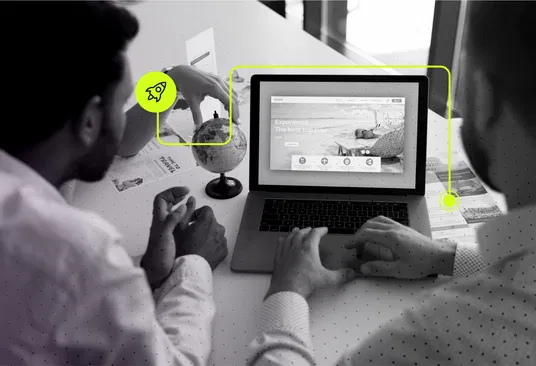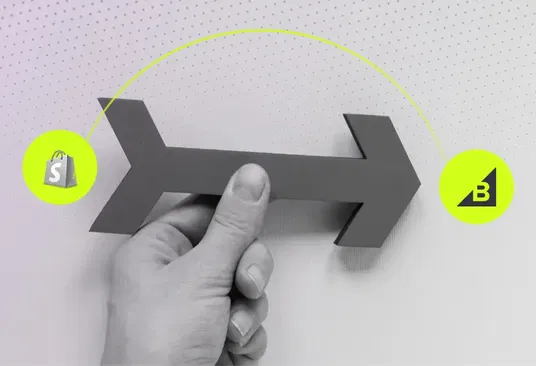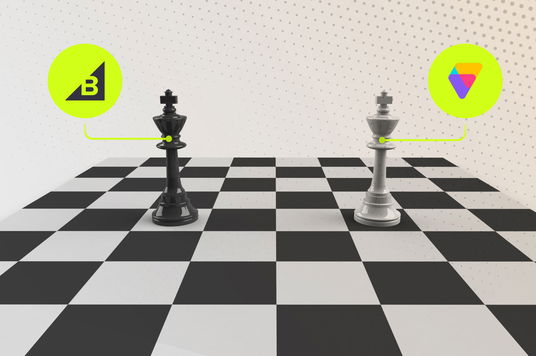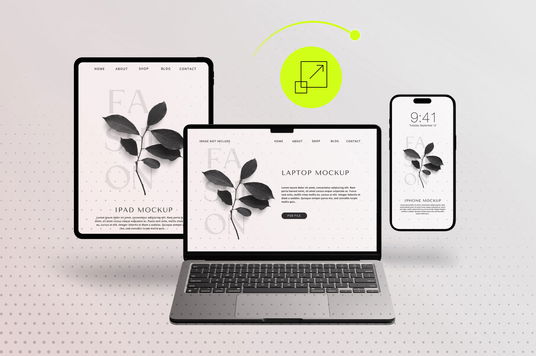How Indie Artists Can Launch a Full Merch + Ticket Store Online

- 🎯 Why Artists Need Their Own Store
- ⚖️ eCommerce Platforms for Artists
- 👕 Setting Up Merchandise Sales
- 🎫 Integrating Ticket Sales
- 📦 Bundling Music with Physical Merch
- 💰 Adding a Digital Tip Jar
- 🛒 Optimizing Checkout Workflows
- 📢 Marketing Your Artist Store
- 🚀 Advanced Features for Growing Artists
- 🤔 Frequently Asked Questions
- Ready to Choose the Right Development Partner?
The music industry has fundamentally changed. Gone are the days when artists relied solely on record labels and third-party platforms to reach fans. Today's indie artists are building direct relationships with their audience through comprehensive online stores that sell everything from vinyl records to VIP concert experiences.
But here's the challenge: most artists struggle to create a cohesive ecommerce for indie music artists experience that seamlessly combines merchandise sales, ticket distribution, and fan engagement. The result? Fragmented customer journeys, lost revenue opportunities, and frustrated fans who can't find what they're looking for.
This guide will show you exactly how to build artist store with merch + tour integration that converts browsers into buyers and casual listeners into devoted fans.
🎯 Why Artists Need Their Own Store
Third-party platforms like Bandcamp, Etsy, and Eventbrite serve their purpose, but they come with significant limitations that can hurt your long-term growth:
- Platform fees eat into profits: Most platforms charge 3-10% per transaction, plus payment processing fees
- Limited customization: You're stuck with their branding and layout restrictions
- No customer data ownership: You can't build email lists or retarget customers
- Fragmented experience: Fans have to visit multiple sites for merch, tickets, and music
- Algorithm dependency: Your visibility depends on platform algorithms you can't control
"Artists who own their ecommerce experience see 40% higher customer lifetime value compared to those relying solely on third-party platforms. The key is creating a unified brand experience that spans all touchpoints."— Music Industry Report, Digital Commerce Trends 2024
When you control your own store, you control the entire fan experience. You can cross-sell merchandise during ticket purchases, offer exclusive bundles, and build a direct relationship with your most dedicated supporters.
⚖️ eCommerce Platforms for Artists
Choosing the right platform is crucial for ecommerce for indie music artists. Here's how the top options stack up for music-specific needs:
BigCommerce: The Artist's Choice
BigCommerce stands out for artists because it offers robust BigCommerce ticket + product checkout capabilities without transaction fees. Key advantages include:
- No transaction fees: Keep more of your revenue
- Built-in inventory management: Perfect for limited edition releases
- Advanced product options: Handle size variants, tour dates, and digital downloads
- API flexibility: Integrate with ticketing systems and streaming platforms
- Mobile-optimized checkout: Essential for impulse purchases at shows
For artists serious about building a professional online presence, music entertainment ecommerce development services can help you leverage BigCommerce's full potential with custom integrations and artist-specific features.
Shopify: User-Friendly but Limited
Shopify is easier to set up but comes with ongoing transaction fees and fewer customization options for complex artist needs like tour date management and digital product delivery.
WooCommerce: Maximum Control
WordPress-based WooCommerce offers unlimited customization but requires technical expertise and ongoing maintenance that most artists don't have time for.
👕 Setting Up Merchandise Sales
Your merchandise strategy should reflect your brand while maximizing profit margins. Here's how to structure your product catalog:
Essential Product Categories
- Apparel: T-shirts, hoodies, hats with tour-specific designs
- Music formats: Vinyl, CDs, cassettes, and digital downloads
- Accessories: Stickers, pins, patches, and branded items
- Limited editions: Signed items, special packaging, exclusive colorways
- Experience packages: Meet & greets, backstage passes, private sessions
Inventory Management for Artists
Unlike traditional retail, artist merchandise often involves:
- Pre-orders: Selling items before they're manufactured
- Limited quantities: Creating scarcity for special releases
- Tour-specific items: Location and date-based products
- Seasonal releases: Holiday specials and anniversary editions
Your ecommerce platform needs to handle these unique inventory scenarios without overselling or disappointing fans.
🎫 Integrating Ticket Sales
The magic happens when you can sell tickets alongside merchandise in a single checkout experience. This BigCommerce ticket + product checkout integration requires careful planning:
Technical Integration Options
- API connections: Link your store to Eventbrite, Universe, or custom ticketing systems
- Embedded widgets: Display ticket options directly on product pages
- Custom checkout flows: Allow fans to add tickets and merch to the same cart
- Real-time inventory sync: Prevent overselling tickets or VIP packages
User Experience Considerations
When fans can buy a concert ticket and a tour t-shirt in one transaction, several things happen:
- Average order value increases by 35-50%
- Checkout abandonment decreases due to convenience
- Fans feel more connected to the artist experience
- You capture more customer data for future marketing
"Artists who integrate ticket and merchandise sales see a 60% increase in per-customer revenue compared to those using separate systems. The convenience factor is huge for fans."— Live Music Analytics, Fan Purchasing Behavior Study 2024
📦 Bundling Music with Physical Merch
Smart bundling music with physical merch strategies can significantly boost your average order value while providing more value to fans:
Effective Bundle Ideas
- Album + Apparel: New release vinyl with exclusive tour shirt
- Concert + Merch: Ticket with pre-show merchandise pickup
- Digital + Physical: Instant download with physical album pre-order
- Fan Club Packages: Quarterly boxes with exclusive items
- Experience Bundles: VIP tickets with signed merchandise and photo ops
Pricing Psychology for Bundles
Successful bundles follow the "rule of three" pricing strategy:
- Basic option: Single item at regular price
- Popular option: Bundle with 15-20% savings (most choose this)
- Premium option: Deluxe bundle with exclusive items
This approach guides fans toward the middle option while making the premium bundle feel like exceptional value for your biggest supporters.
💰 Adding a Digital Tip Jar
A digital tip jar on musician's store provides fans with an easy way to support you beyond purchasing products. Here's how to implement it effectively:
Technical Implementation
- Floating widget: Always-visible tip option that doesn't interfere with shopping
- Checkout integration: "Add a tip" option during purchase process
- Preset amounts: $5, $10, $25 options with custom amount field
- Thank you messaging: Personalized responses for different tip levels
Positioning and Messaging
The key to successful tip jar implementation is framing it correctly:
- "Support the music" rather than "tip the artist"
- "Help fund the next album" gives tips a specific purpose
- "Join the inner circle" makes tipping feel exclusive
- "Buy me a coffee" makes small amounts feel meaningful
Artists using well-positioned digital tip jars typically see 8-12% of customers adding tips, with average amounts ranging from $3-15.
🛒 Optimizing Checkout Workflows
Your checkout process can make or break sales, especially for impulse purchases at live shows or during limited-time releases. Here's how to optimize for artist-specific scenarios:
Mobile-First Checkout Design
Since many fans will purchase during or after shows using their phones, your checkout must be mobile-optimized:
- One-page checkout: Minimize steps and form fields
- Large touch targets: Easy to tap buttons and form fields
- Auto-fill support: Let browsers populate shipping and payment info
- Guest checkout option: Don't force account creation
- Multiple payment methods: Credit cards, PayPal, Apple Pay, Google Pay
Urgency and Scarcity Elements
Artists can leverage natural scarcity to drive conversions:
- Limited quantity counters: "Only 23 signed posters left"
- Time-sensitive offers: "Pre-order ends in 48 hours"
- Tour-specific deadlines: "Order by Tuesday for show pickup"
- Exclusive access messaging: "Available only to email subscribers"
Post-Purchase Experience
The relationship doesn't end at checkout. Your post-purchase flow should:
- Confirm purchase immediately: Clear order confirmation page
- Set expectations: Shipping times, pickup instructions, digital delivery
- Encourage social sharing: "Share your support" buttons
- Suggest related items: "Fans also bought" recommendations
- Collect feedback: Reviews and testimonials for social proof
📢 Marketing Your Artist Store
Building the store is just the beginning. Here's how to drive traffic and sales:
Content Marketing Strategies
- Behind-the-scenes content: Show merchandise creation process
- Unboxing videos: Demonstrate product quality and packaging
- Fan spotlights: Feature customers wearing your merch
- Limited edition stories: Create narrative around special releases
- Tour diaries: Connect merchandise to specific shows and memories
Email Marketing for Artists
Your email list is your most valuable asset. Segment subscribers based on:
- Purchase history: VIP customers vs. first-time buyers
- Geographic location: Tour announcements by region
- Product preferences: Vinyl collectors vs. apparel buyers
- Engagement level: Super fans vs. casual listeners
Social Media Integration
Make your products shoppable across all platforms:
- Instagram Shopping: Tag products in posts and stories
- Facebook Shop: Showcase your full catalog
- TikTok Shopping: Link products in video descriptions
- YouTube merchandise shelf: Display products below videos
"Artists who integrate their ecommerce store with social media see 3x higher conversion rates from social traffic compared to those who just post links to external sites."— Social Commerce Report, Music Marketing Analytics 2024
🚀 Advanced Features for Growing Artists
As your fanbase grows, consider these advanced features to scale your operation:
Fan Club and Subscription Services
- Monthly merchandise boxes: Recurring revenue from dedicated fans
- Early access programs: Let VIP members shop new releases first
- Exclusive content bundles: Unreleased tracks with physical items
- Tiered membership levels: Different perks for different commitment levels
International Expansion
When you're ready to sell globally:
- Multi-currency support: Display prices in local currencies
- International shipping: Calculated rates and customs handling
- Tax compliance: VAT, GST, and other regional requirements
- Localized content: Translate key pages and product descriptions
Analytics and Optimization
Track these key metrics to improve performance:
- Conversion rate by traffic source: Which channels drive buyers vs. browsers
- Average order value trends: Impact of bundles and upsells
- Customer lifetime value: How much each fan spends over time
- Product performance: Which items drive the most revenue
- Seasonal patterns: When fans are most likely to purchase
🤔 Frequently Asked Questions
How much does it cost to set up an artist ecommerce store?
Initial setup costs range from $500-5000 depending on customization needs. Monthly platform fees typically run $30-300, plus payment processing fees of 2.9% + 30¢ per transaction. Factor in inventory costs, shipping materials, and marketing budget for a complete picture.
Can I integrate my existing ticketing system with my merch store?
Yes, most modern ecommerce platforms offer API integrations with popular ticketing systems like Eventbrite, Universe, and Ticketmaster. Custom integrations are also possible for unique requirements. The key is ensuring real-time inventory sync to prevent overselling.
What's the best way to handle pre-orders for new album releases?
Set up pre-orders with clear shipping dates, offer instant digital downloads for immediate gratification, create bundle packages with exclusive items, and use email automation to keep customers updated on production and shipping status.
How do I manage inventory for tour-specific merchandise?
Use location-based product variants, set up separate inventory pools for online vs. tour sales, implement automatic stock allocation based on venue capacity, and create tour-date-specific product pages with local pickup options.
Should I offer international shipping from day one?
Start domestic-only to simplify operations, then expand internationally once you have consistent sales volume. International shipping adds complexity with customs, taxes, and longer delivery times that can hurt customer satisfaction if not handled properly.
🎯 Key Takeaways
- Own your ecommerce experience to control customer relationships and maximize revenue
- Choose BigCommerce for no transaction fees and advanced product management capabilities
- Integrate ticket and merchandise sales for higher average order values
- Bundle music with physical products to increase perceived value and sales
- Implement a digital tip jar to capture additional revenue from supportive fans
- Optimize checkout for mobile users who purchase during or after shows
- Use email marketing and social media integration to drive consistent traffic
- Track key metrics to continuously improve store performance and fan experience
Ready to Choose the Right Development Partner?
Building a professional artist store that seamlessly integrates merchandise, tickets, and fan experiences requires specialized expertise. Our team has helped dozens of indie artists create stores that convert browsers into buyers and casual fans into devoted supporters.
Get Your Free ConsultationAbout 1Center
1Center is a leading ecommerce development agency specializing in custom BigCommerce solutions for creative industries. We understand the unique challenges artists face when selling online and have developed proven strategies for integrating merchandise, ticketing, and fan engagement into cohesive ecommerce experiences.
Our team combines technical expertise with deep industry knowledge to help musicians, bands, and entertainment companies build stores that reflect their brand while maximizing revenue opportunities. From initial strategy to ongoing optimization, we're your partner in creating an online presence that grows with your career.
Written byPublished July 20, 2025
1Center


